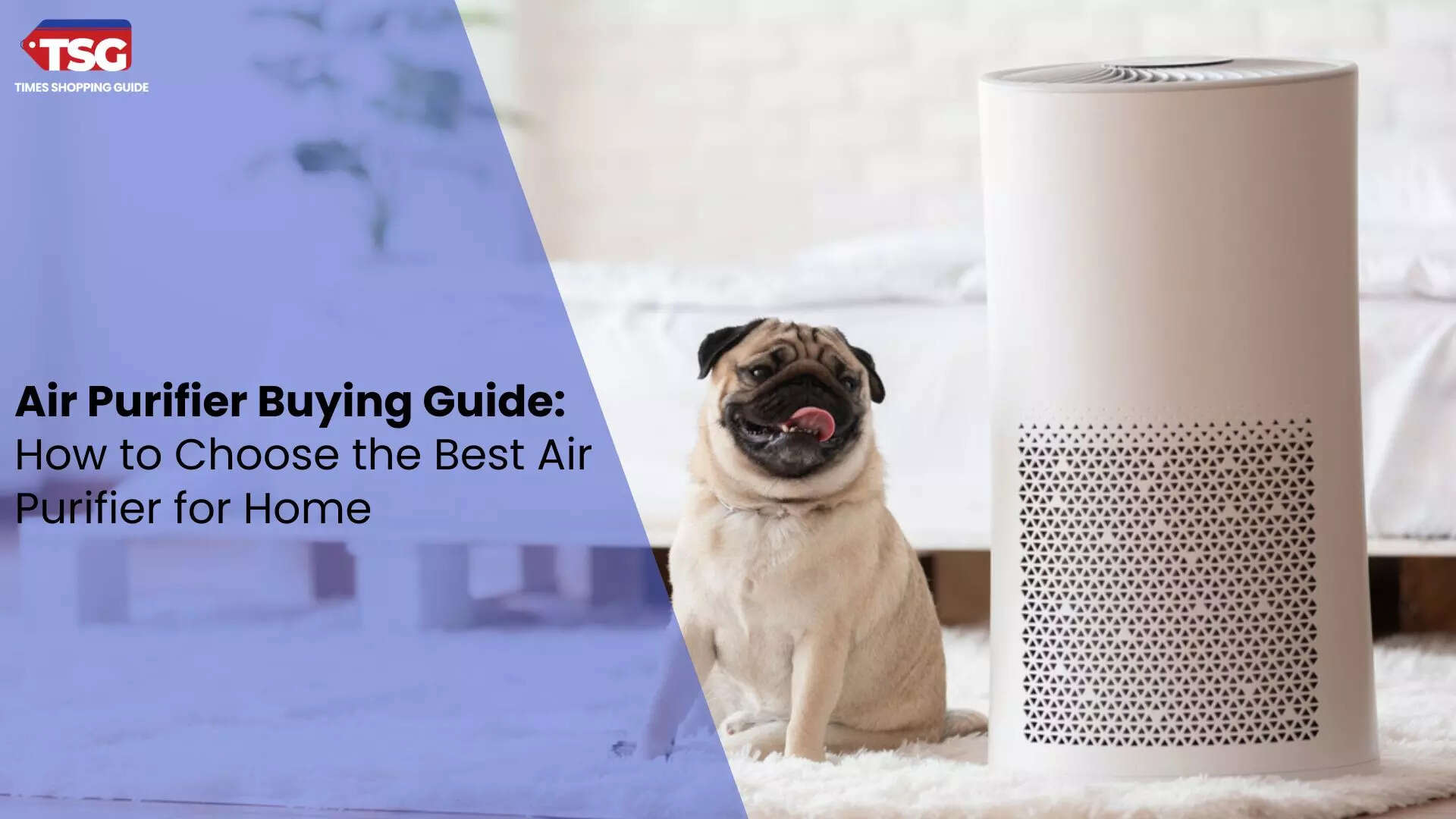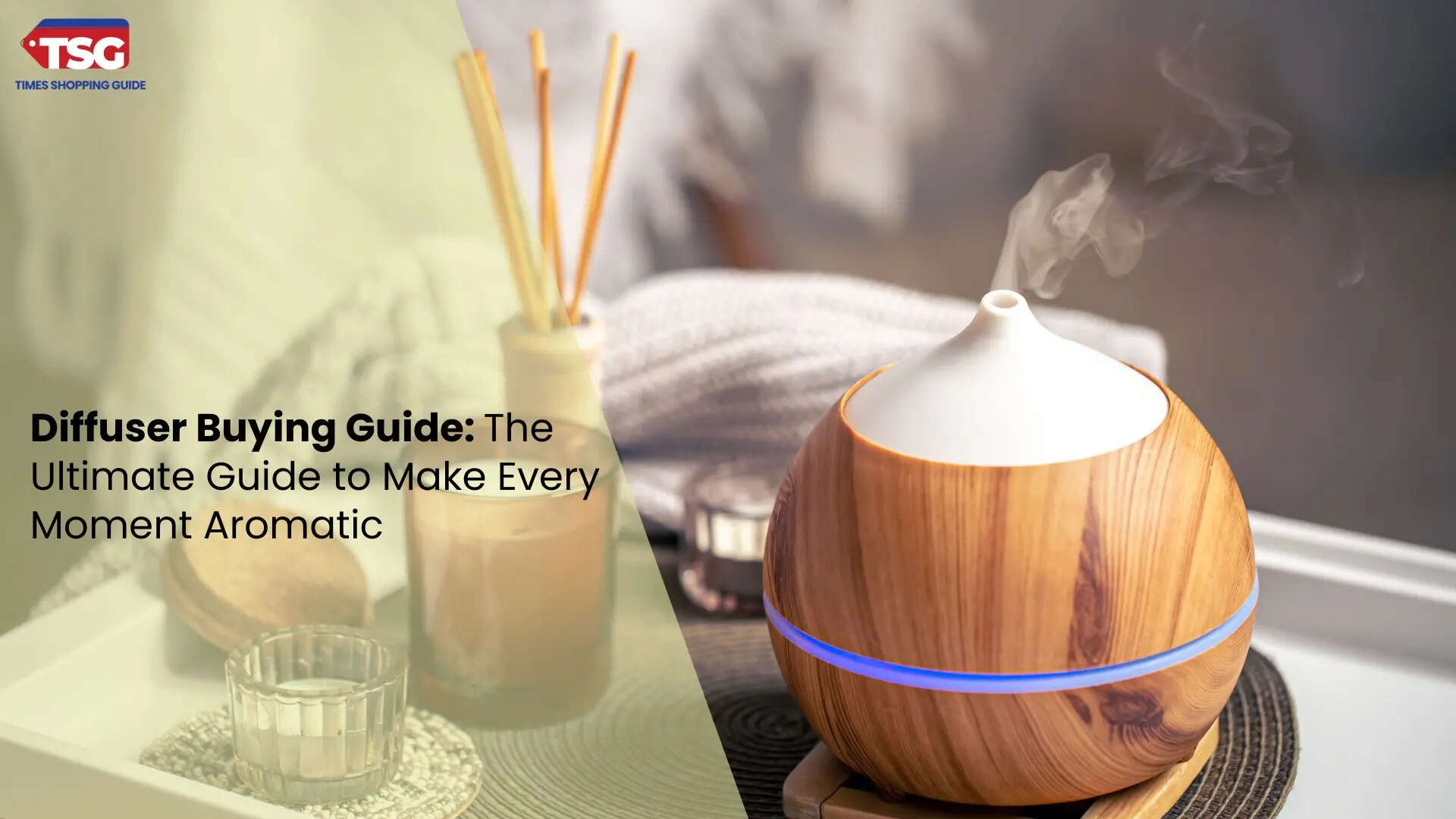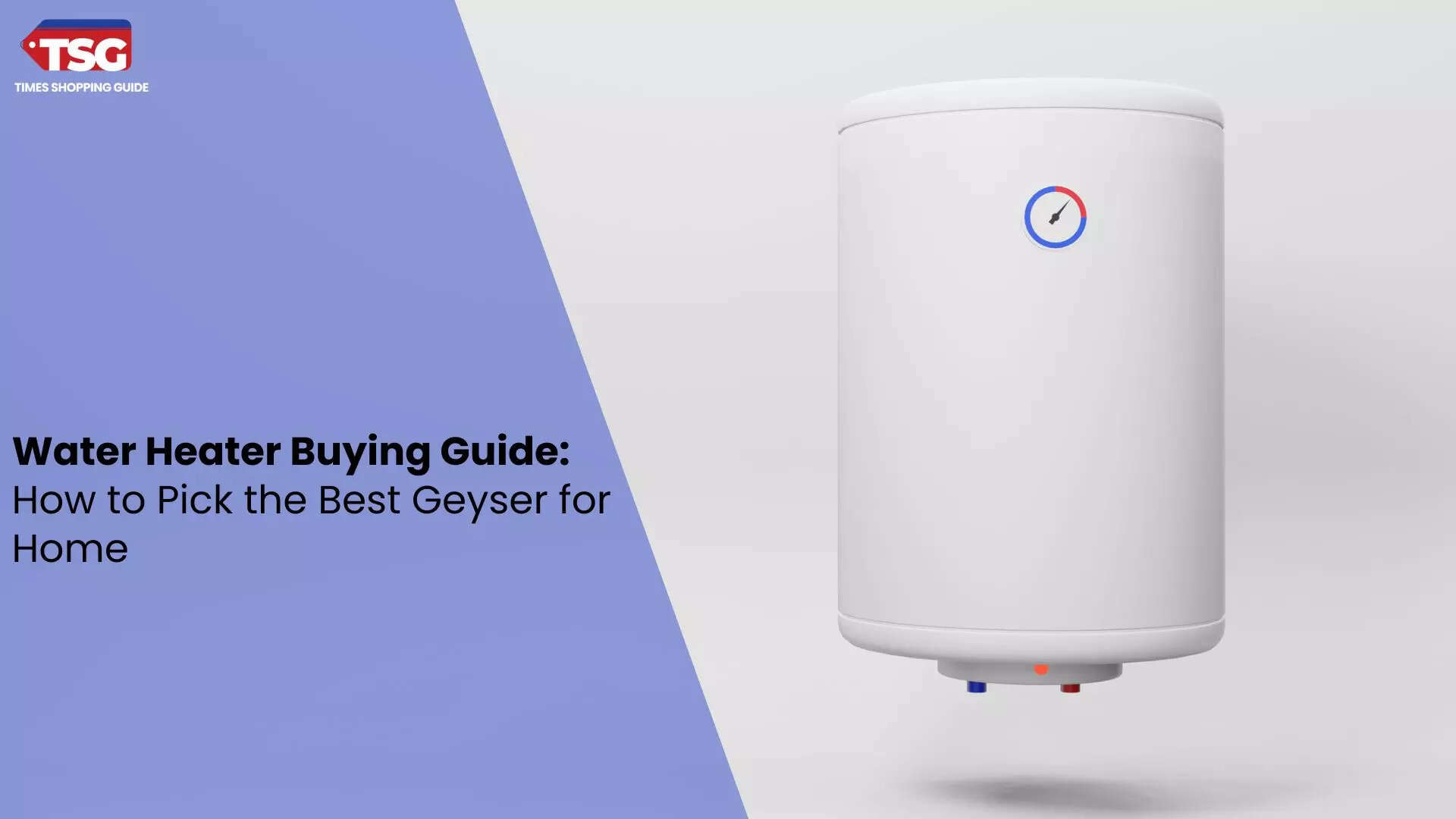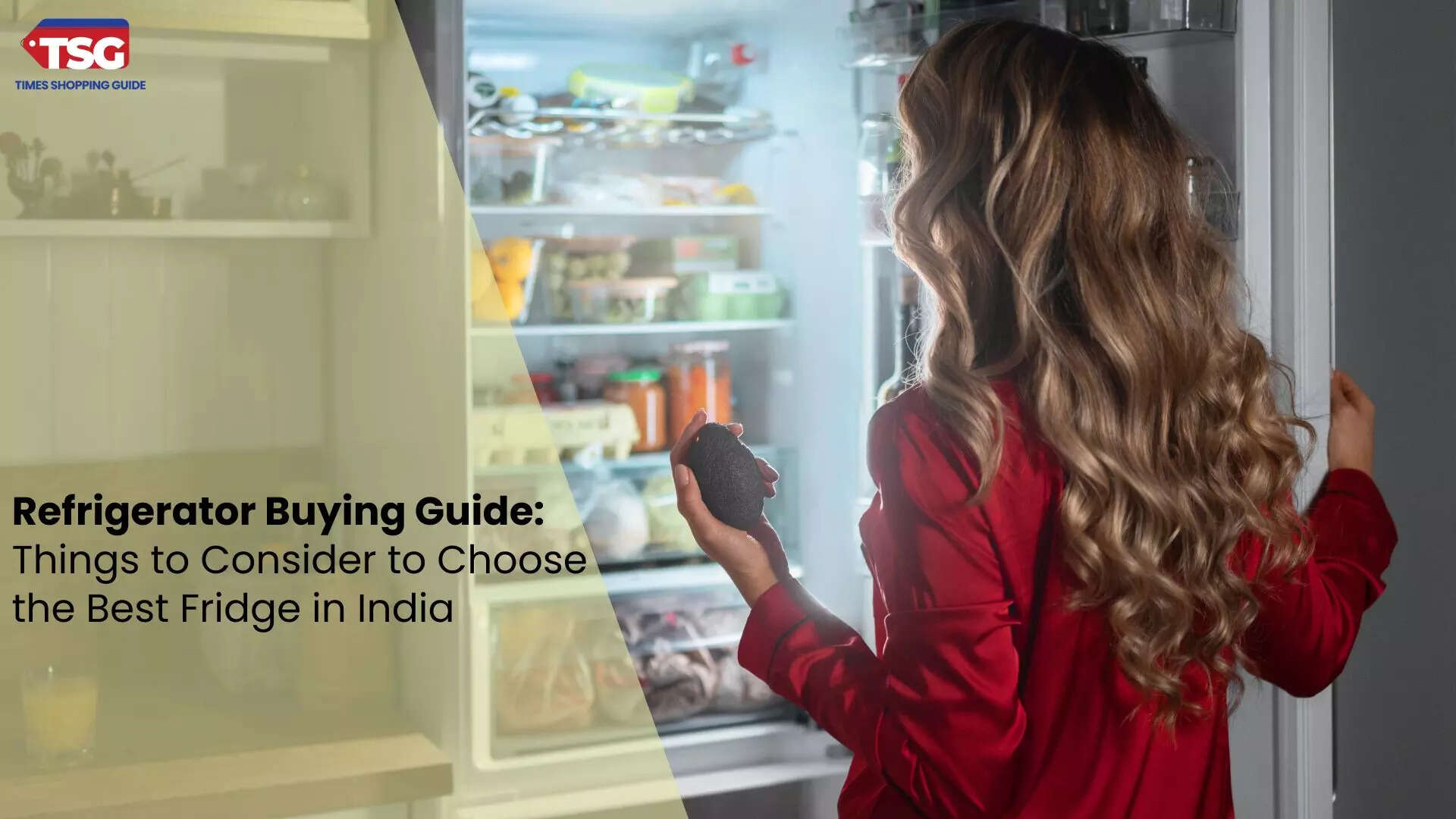- home
- appliances
- buying guide
- air purifier buying guide how to choose the best air purifier for home
Air Purifier Buying Guide: How to Choose the Best Air Purifier for Home
As air quality becomes an increasing concern daily, selecting the right air purifier is essential for maintaining a healthy home environment. Whether you're combating allergens, smoke, or pollutants, understanding the features and specifications of air purifiers can help you make an informed decision. This room air purifier guide provides a comprehensive overview of key factors to consider when purchasing an air purifier, ensuring you choose the best model.

By evaluating these aspects, you can find the best air purifier that improves air quality and fits seamlessly into your lifestyle and budget.
Air Purifier Buying Guide: Understanding Air Quality
Before diving into the features and types of air purifiers, it’s essential to understand what affects indoor air quality. Common indoor air pollutants include:- Dust and Dust Mites: Tiny creatures that thrive in household dust can exacerbate allergies.
- Pollen: Outdoor allergens that can make their way indoors.
- Mold Spores: Fungi that can grow in damp areas of the home.
- Pet Dander: Tiny skin flakes from pets that can trigger allergic reactions.
- Smoke and Odors: From cooking, candles, and tobacco products.
Air Purifier Buying Guide: Types of Air Purifiers
1. HEPA Air PurifiersHigh-efficiency particulate Air (HEPA) purifiers are the gold standard in air filtration. They are designed to capture at least 99.97% of particles that are 0.3 microns in size, including dust, pollen, and pet dander. A HEPA air purifier for home is often the best choice if you suffer from allergies or asthma.
2. Activated Carbon Air Purifiers
These home air purifiers use activated carbon filters to remove odours, gases, and volatile organic compounds (VOCs). While they are excellent for eliminating smells from cooking or pets, they do not effectively capture particles like dust or pollen. Many models combine HEPA and activated carbon filters for comprehensive filtration.
3. UV-C Air Purifiers
Ultraviolet-C (UV-C) purifiers use UV light to kill bacteria, viruses, and mould spores. While they are effective for sanitisation, they are typically used with HEPA filters, as they do not capture particles.
4. Ionic Air Purifiers
Ionic air purifiers for rooms release charged particles, which attach to pollutants, causing them to settle out of the air. However, they can produce ozone, which can be harmful in high concentrations. If considering an ionic purifier, ensure it is certified to produce low ozone levels.
Read This: 7 Best Air Purifiers in India for Healthy Breathing & Combating Pollution.
5. Ozone Generators
These room air purifiers intentionally produce ozone to remove odours and pollutants. However, they are not recommended for occupied spaces due to the health risks associated with ozone exposure.
Air Purifier Buying Guide: Key Features to Consider
When choosing an air purifier, consider the following features:1. Room Size
Air purifiers are rated for different room sizes, usually indicated in square feet. Before purchasing, measure the room where you plan to use the purifier and choose a model with a suitable Clean Air Delivery Rate (CADR) for that space. CADR indicates how quickly the unit can clean the air; the higher the number, the faster the air is purified.
2. Filtration System
Look for air purifiers with multiple filtration stages. A combination of HEPA and activated carbon filters is often ideal for capturing particles and odours. Ensure that replacement filters are readily available and affordable.
3. Noise Levels
Consider the noise levels of the air purifier for room, especially if you plan to use it in a bedroom or quiet area. Most manufacturers provide decibel ratings for their units. Models with a “silent” or “sleep” mode operate quietly at night.
4. Energy Efficiency
Air purifiers for home run continuously, so energy efficiency is essential. Look for models with the Energy Star label, which indicates they meet energy efficiency guidelines set by the U.S. Environmental Protection Agency (EPA).
5. Maintenance Requirements
Regular maintenance is crucial for optimal performance. Check how often filters need to be replaced and the associated costs. Some models have filter replacement indicators, which can help manage maintenance.
6. Smart Features
Modern room air purifiers often feature smart technology, such as air quality sensors, mobile app connectivity, and automated settings. These features allow users to monitor air quality in real-time and adjust settings remotely, enhancing convenience.
7. Portability
If you plan to move your air purifier from room to room, consider its size and weight. Some models come with wheels or handles for easy mobility.
Air Purifier Buying Guide: Evaluating Your Needs
When choosing the best air purifier for home, it's important to evaluate your specific needs:1. Allergies and Asthma
If you or a family member suffers from allergies or asthma, prioritise a HEPA air purifier with a strong CADR rating. Additional features like a pre-filter and activated carbon can help remove odours and other irritants.
2. Pets
A room air purifier that combines HEPA filtration with activated carbon is ideal for households with pets. This combination effectively captures pet dander and eliminates odours.
3. Smoke and Odors
If you frequently cook or smoke indoors, look for an air purifier with a high-quality activated carbon filter. Some purifiers are specifically designed to combat smoke and cooking odours.
4. Newborns and Children
If you have young children, consider a purifier that operates quietly and has a low ozone output. A HEPA filter can help ensure clean air for sensitive respiratory systems.
5. Location in the Home
Consider where you plan to place the air purifier. Larger models may be suitable for living areas, while smaller, portable units may be better for bedrooms or home offices.
Air Purifier Buying Guide: Budget Considerations
Air purifiers range widely, from under Rs 8,000 to over Rs 80,000. While it can be tempting to go for a cheaper option, investing in a high-quality air purifier can provide better performance and longer-lasting benefits. Remember the total cost of ownership, including filter replacement and energy consumption.Entry-Level Models
These room air purifiers typically cost between Rs 4,000 to Rs 12,000. They are suitable for small rooms and basic air cleaning needs. While they may not have advanced features, they can still improve air quality.
Mid-Range Models
Mid-range air purifiers for rooms, priced between Rs 12,000 to Rs 42,000, often offer better filtration systems, higher CADR ratings, and additional features like smart technology. They are ideal for medium to large rooms and provide a good balance of performance and price.
High-End Models
High-end home air purifiers, costing Rs 42,000 and above, offer advanced filtration technologies, larger capacities, and smart features. They are designed for large spaces and can tackle various air quality issues.
Air Purifier Buying Guide: Reading Reviews and Ratings
Before making a purchase, read customer reviews and professional ratings. Websites like Consumer Reports and other product review sites can provide valuable insights into the performance and reliability of specific models. Pay attention to comments regarding noise levels, ease of maintenance, and overall satisfaction.FAQs
1. Do air purifiers make a difference?
Air purifiers offer an effective option for helping remove particles from the air circulating in your home.
2. What are the uses of air purifiers?
Air purifiers offer several benefits for indoor air quality, including removing allergens, particles, and odours and enhancing overall air quality. Cleaner air may also lead to better sleep quality.
3. Do doctors recommend air purifiers?
Medical professionals suggest prioritizing maintaining a clean home and frequently sanitizing used surfaces. Air purifiers should be an accessory to your cleaning routine, not a priority.
Disclaimer: Times Shopping Guide is committed to bringing you the latest products from the best brands. Our selection is based on market research and positive consumer feedback. Times Shopping Guide is also a part of an affiliate partnership. In line with this, we may receive a portion of the revenue from your purchases. Please note that the product prices are subject to change based on the retailer's deals.










